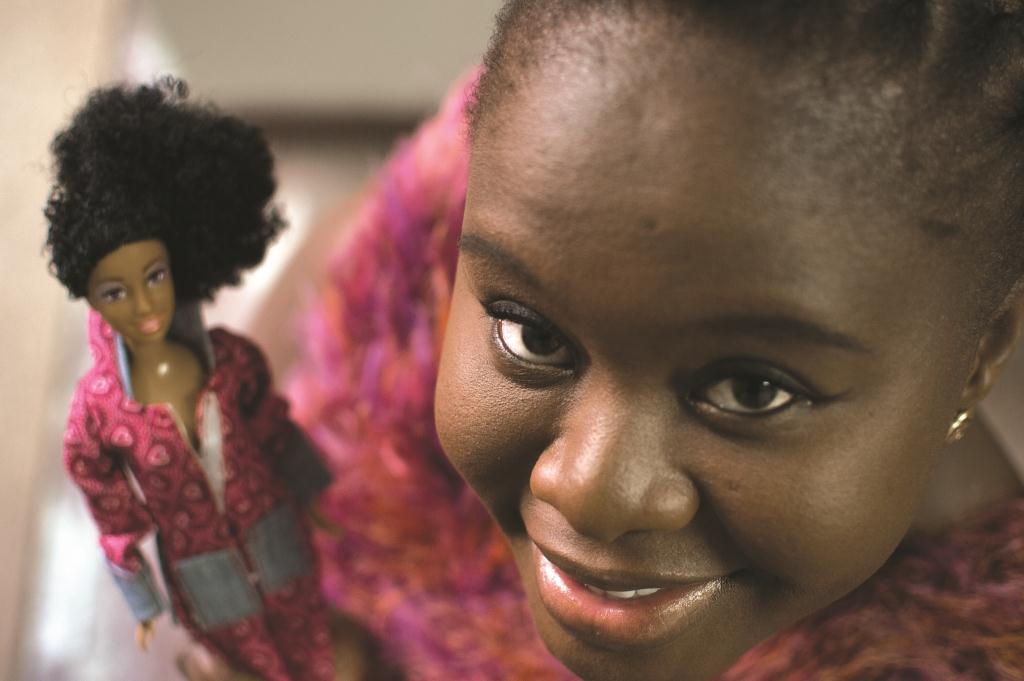“Mommy when I grow up, I want to be white. Just like Barbie, she’s beautiful with long hair.”
Nothing can prepare a black mother for this impromptu statement from a toddler-daughter, who has, it would seem, already come to define beauty as the little white doll in her hands.
Maite Makgoba, a former language practitioner in the South African Air Force and who was raised in Soweto, a township south of Johannesburg, took it upon herself to give these toddlers a choice – and a reprieve from their toy monotony. She called it Momppy Mpoppy.
As a new aunt, Makgoba was herself perplexed when out looking for the perfect doll for her nieces. There was nothing on retail shelves that looked anything like them. And she thought: “Why not generate something that will also boost self-love?”
“I realized how not diverse kiddies’ toys were, they represented a specific race and idea of beauty. The images that do not represent little black girls are the same ones they are bombarded with,” she says.
Loading...
Launching Momppy Mpoppy was not child’s play however. The first year was tough when Makgoba learned that almost everything plastic is not created in South Africa.
With the help of her acquaintances she made international contacts. Potential investors were apprehensive and questioned who exactly would buy black dolls. She eventually found a company in China called PJ Toys who were willing to sponsor a trial. The challenge was imparting the dolls with black female features.

“Just getting a bend on the nose to make it a snub was a struggle,” says Makgoba. “We had to restyle it to fit the vision of what I wanted, because it had to be fun.”
And just as well, Momppy Mpoppy dolls are endowed with different shades of brown melanin, a curly afro and outfits made of African prints and patterns.
While Makgoba acknowledges her doll has typical Barbie proportions, she says for a start-up business, she would rather spend money getting the coloring right, than the contours.
Makgoba identified a gap in the market, which was not just the scarcity of black dolls but a dearth of African kids’ characters and merchandise, so expanding Momppy Mpoppy to branded hair, clothing, packaging and party themes was the natural progression.
“This was inspired by a customer who said, ‘you made my child fall in love with this character, now you have to help us create a Momppy Mpoppy party theme’.”
The doll has to be visible in every part of a child’s life – on her pencils, bags, puzzles, even underwear.
With an opening stock of over R17,000 ($1,375), Momppy Mpoppy generated almost R280,000 ($22,700) in its first year of operation. Makgoba estimates that in the next five years, the income from the dolls will be more than R3 million ($242,600), and from the branded clothing and accessories R4 million ($323,500).
The dolls are priced at R179 ($15) each. With black women returning to their natural hair, Makgoba feels Momppy Mpoppy will make waves in the market.
“It’s a movement starting among black women that their daughters can be part of.”
Momppy Mpoppy is looking to be in the cartoon world as well. She says talks are on with Trigger, an animation company in Cape Town, to develop a cartoon character based on the brand.
In the end, Makgoba is confident little black girls will begin to embrace their natural beauty, locks and all.
Loading...
